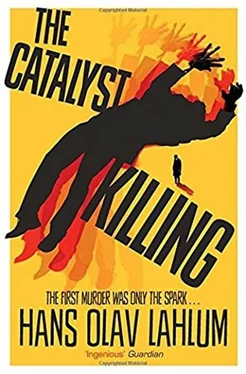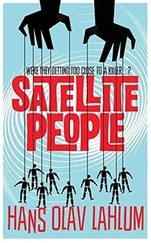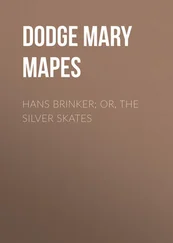The temptation to ask if she was aware that the others suspected her of being the police security service’s informant was too great.
I was interested to see whether this might lead to a sudden outburst of emotion. But it would obviously take a lot more than accusations of treachery to knock Miriam Filtvedt Bentsen off balance. She leaned forward a touch and answered that she had not heard anything like that before, but that she should perhaps not be surprised. Then she asked, with noticeable curiosity, who had said that – only to answer her own question by saying that it was no doubt Anders or Trond, and that it really didn’t matter anyway. The accusation was, in her own words, absurd. For the sake of formality, she added that she had of course never had any form of contact with the intelligence services, and would not have answered any questions about the group, or anything else for that matter, had they contacted her.
My instinct was to believe her, and in any case, I saw no reason to pursue the idea any further here and now. So I turned instead to the stormy night in Valdres when Falko Reinhardt had disappeared, and asked whether any explanation had ever occurred to her.
Miriam Filtvedt Bentsen answered that she had of course given it much thought, but much to her frustration had not come up with any answers. She had herself also been awake for a long time that night, and had heard nothing. She had gone to sleep around midnight, so trusted her ‘roommate’ Kristine Larsen’s statement that Falko had not been out in the hall at any point.
I asked if she still stood by her statement about having seen a face at the window, as well as a person out in the storm that night. Miriam Filtvedt Bentsen nodded, more serious now. She understood, she said, that her account of a face looking in through the window that night sounded absurd, and the fact that the upper part of the face had been hidden by a mask made it even more far-fetched. But that was exactly what she had seen, and she would never have tried to deceive the police with such an unlikely story.
She looked me straight in the eye when she said this, and I had to agree with Detective Inspector Danielsen’s notes from 1968, despite my antipathy towards him. The witness appeared to be reliable, even if her story was rather bizarre.
Miriam Filtvedt Bentsen added that it was a man who had looked in, and that he had a mole on his chin, which she would recognize if she ever saw him again. But otherwise it was not possible to describe him in any more detail, because of the mask and the weather.
She was even more cautious about describing the person she had seen out in the storm, as the visibility was so poor. She had been a short distance away from the others, but was sure enough of what she had seen to shout to them and point at the shadow in the dark. However, it was quite far away and no one else had been able to see it clearly.
Miriam Filtvedt Bentsen looked at me directly again and repeated that she had seen something upright moving through the storm, and that it was too tall, too slim and not the right colour to be an animal. For want of any alternative, she could say with ninety per cent certainty that she had seen a person. She believed that it was a person who was not only walking away from the students, but from the cabin as well. But she added with a disarming and self-deprecatory smile that although her younger brother had inherited the family’s sense of direction, she had not, so she could not be sure.
I looked at my watch and discovered to my surprise that it was a quarter to six. I had been sitting here in the SPP office for more than half an hour, in an interview situation, with my face alarmingly close to that of Miriam Filtvedt Bentsen. And at no point had I been anywhere close to catching her off balance. There was perhaps more interest and curiosity in her eyes now than when we first met, but they were still just as calm and confident when they met mine. I was strongly inclined to believe everything she had said, even though I had several times told myself that this appeared to be a case in which no one could be trusted.
Whatever the case, I was now in danger of being late for my important meeting with the victim’s father. So I promptly thanked Miriam Filtvedt Bentsen for her answers and asked if I could contact her again should any relevant questions arise. She brightened up and said that she had a busy week ahead, what with her studies and party commitments, but that she would of course make time if it was necessary for the investigation. She unfortunately did not have a telephone in her student room, but for the next few days would be at the university library between nine and five, and at the party office between a quarter past five and ten in the evening.
I managed to swallow my laughter. Instead I commented with a smile that she clearly took her studies very seriously – given that she also obviously read on her way from the university to the party office. Her reply was open-hearted and highly unexpected: ‘Before, I even read books in the shower!’
Fortunately, I managed to refrain from blurting out my spontaneous response: ‘Now that I would like to see!’ At the last moment I realized that it might be misconstrued and insulting. So instead I permitted myself a short burst of friendly laughter. She gave an ironic smile and added that she had stopped when it proved to be impractical. The books were fine as long as you kept them out of the water, but it took so much longer to shower when reading, so it was not rational. Another rather unfortunate consequence was that there was rarely enough warm water left for her parents and little brother.
Miriam Filtvedt Bentsen explained that she believed you had to be a rational idealist to make the world a better place in this day and age. And in order to demonstrate the point, she took out a large pile of papers as she said this and started to sort through them.
I watched the obviously very rational idealist for a few seconds with a mixture of surprise and fascination. She sorted with alarming speed. I thanked her once again for the information and wished her a good evening – and was only too well aware that I would be late for my meeting with the deceased’s father.
Miriam Filtvedt Bentsen looked up briefly from her pile of paper, waved and flashed me a crooked smile as I left the office. For want of any other leads, I interpreted it as a good omen for my investigation. I found it reassuring and credible, and not in the least suspect, that she was the only one who had remained calm on the night that Falko Reinhardt had disappeared. And for my own personal record, I noted that the sole dissenter in the group was rather beautiful as she sat there alone, smiling, even if it was by a desk in the SPP office.
It was ten past six by the time I rang the doorbell of Martin Morgenstierne’s house in Frogner.
The house was even larger than I had expected, and the host more correct. He was standing waiting at the door, gave me a firm handshake and immediately accepted my apology that I was a few minutes late owing to other commitments relating to the case.
Martin Morgenstierne was as impeccably dressed as I had imagined, in a black suit and tie. But he was unexpectedly tall and unexpectedly youthful. His hair was still black and his face was free of wrinkles, so he did not look a day over fifty, and his movements were still vigorous and dynamic. He seemed remarkably fit for a bank manager.
Martin Morgenstierne showed me into the drawing room and we sat down opposite each other on very generous sofas. I politely declined his offer of a drink. He poured himself a small glass of cognac from a large drinks cabinet, but left it untouched to begin with. I waited to see if he would say anything first. In the meantime, I glanced swiftly around the room.
Читать дальше












